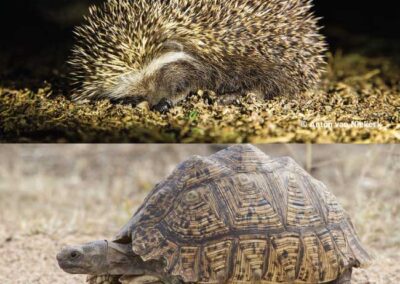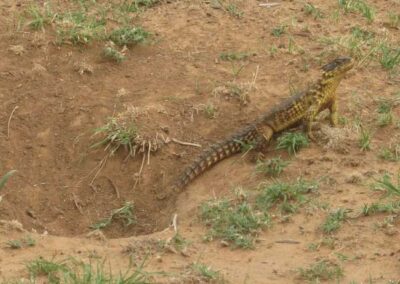Transporting wildlife? Here’s what you need to know!
Obeid Katumba, the EWT Wildlife in Trade Programme, Wildlife and Law Project Officer
Wildlife (including plants) faces many threats driven by human activities, including habitat loss, degradation, fragmentation, pollution, and the emerging threat posed by climate change. However, Illegal Wildlife Trade (IWT) remains one of the primary drivers of species decline. The consequences of IWT include the following:
- The decline in species populations and species extinctions, as often rare, Endangered, threatened, and protected species are targeted and exploited, pushing them closer to extinction.
- The spread of alien and invasive species (AIS) introduces species into habitats in which they do not naturally occur, and they threaten native species as they encroach on habitat and compete for resources.
- Security concerns and wildlife trafficking have increasingly been linked to organised crime, corruption, money laundering activities, and the general undermining of the legal system.
- Animal welfare concerns as the animals are often kept and transported in conditions that threaten their welfare.
- The spread of Zoonosis, diseases that can be transmitted from animal to human, affects humans, wildlife, and agriculture.
IWT is an international concern and is known to be among the most lucrative criminal operations globally, alongside drug trafficking and human trafficking. As with other organised crime, IWT uses transport networks, both legal and illegal, for the movement of commodities, in this instance, wildlife.
Domestic pet transporters are increasingly used to transport wildlife illegally within South Africa. Sometimes these transporters do this unknowingly without understanding the relevant laws around transporting wildlife. In addition, these transporters might not verify the species of animal being transported, cannot accurately identify species, or might not know whether permits are required for possessing and transporting such species.
The Endangered Wildlife Trust’s Wildlife in Trade Programme aims to raise awareness of wildlife laws in the domestic pet transporting industry and ensure that domestic pet transporters and other operators across South Africa understand the legal requirements for transporting wildlife. To achieve this, we are launching a comprehensive online and social media awareness-raising campaign that will present quick reference guides demonstrating the legal requirements for possessing and transporting wildlife. The campaign will also provide information on the consequences of non-compliance with applicable laws and contact information for the relevant authorities for obtaining permits to possess and transport wildlife. Key information presented through the campaign will include:
- What are the relevant laws to become familiar with?
- How do you know what you are transporting?
- Do you need a permit to transport it?
- How can you get a permit?
- What if you don’t have a permit?
As a starting point, it is important for everyone to know that permits are needed for restricted activities involving living or dead, part or whole, legally protected indigenous species (species that occur naturally in South Africa). Examples of indigenous species include South African Hedgehogs, Leopard Tortoises, African Rock Pythons, Sungazers, and the Cape Parrot.
-

Top: South African Hedgehog (Atelerix frontalis) and bottom: Leopard Tortoise (Stigmochelys pardalis)
-

Sungazer Lizard (Smaug giganteus, syn. Cordylus giganteus), also known as the giant girdled lizard, at a burrow
Examples of restricted activities involving protected species include:
- Moving or translocating such species
- Selling, buying, or otherwise trading in these species
- Receiving, giving, donating, or accepting such species
- Having in possession or exercising physical control over such species.
Permits are also required for restricted activities involving listed alien and invasive species (AIS). Examples of AIS include Burmese Python, Mallard Duck, and Rose-ringed Parakeet.
Examples of restricted activities involving Alien and Invasive species include:
- Possessing or exercising physical control over AIS
- Moving or otherwise translocating AIS
- Selling, buying, or otherwise trading in AIS
- Acquiring, receiving, giving, donating, or accepting AIS
Being involved in a restricted activity without a permit means that you have committed an offence, and if found guilty, the penalties can be up to ten years imprisonment, a fine not exceeding 10 million rand, or both per charge. In addition to fines and imprisonment, the guilty person can be held liable for costs associated with any rehabilitation and restoration of the damage to the habitat caused by the release of the AIS.
Permits can be applied for in each of the nine provinces, at designated offices or through the national office for AIS species. If you would like more information on this issue, please contact the EWT, for attention Obeid Katumba.
This campaign is made possible through the generous support of the Lewis Foundation.
